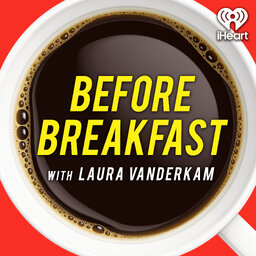Shakespeare scholar and magazine editor Emily Kwilinski shares why to add older books to your to-be-read list
In 1 playlist(s)
Before Breakfast
In each bite-sized, daily episode of Before Breakfast, host Laura Vanderkam shares a time management…Social links
Follow podcast
Recent clips

Second Cup: Good ideas take time
05:28

Second Cup: Anniversaries aren't just for romance
05:31

Start your weekend early
04:53
 Before Breakfast
Before Breakfast